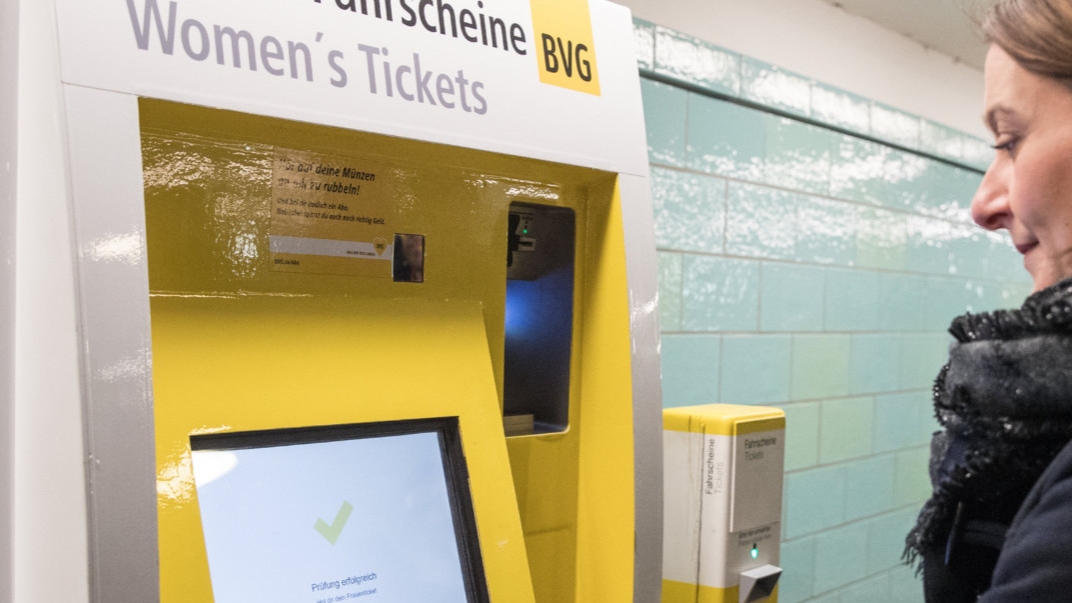This Year’s DMEXCO Examines Advertising’s Trust Issues

Hosted this week in Cologne, Germany, the DMEXCO conference examined the challenges in advertising through its theme, “Trust in You.” This subject is multilayered and holistic, focused on instilling trust between consumers and brands, between brands and their partners and regaining trust in digital technology’s benefits to society overall.
Trust is earned, and brands know they can’t take it for granted—what’s built up over months or even years can vanish overnight. With consumers’ scrutinizing how data is handled more now than ever before, these growing tensions highlight an imperative for brands and agencies alike in a new era of advertising: establish new partnerships that are equipped to recognize and react to shifting consumer priorities at speed in a way that provides value to consumers.
Responding to Shifts in Consumer Expectations
One of the greatest paradoxes in advertising is that consumers expect and desire highly relevant, tailored creative that fits within the context of their lives and everyday activities—but at the same time, there’s a mistrust around the use of data that powers these experiences. Earlier this year, MediaMonks founder and COO Wesley ter Haar spoke to Ad Age about where data falters and where it thrives. “Personalization that makes sense and adds value is super powerful: think a handwritten card, knowing my name or my order at a restaurant,” he said. “In the digital space we’ve become resistant to it, perhaps because it needs to show some empathy instead of this relentless data mining.”

Google's area of the conference drew quite a crowd. (Photo: ©Koelnmesse)
Instilling trust in consumers amounts to making a clear value exchange, often playing off contextual triggers that infer what a user is trying to achieve. In their talk “Making the Web Work for Everyone in a Privacy First World” at DMEXCO, Googlers Matt Brittin (President EMEA Business and Operations) and Emily Henderson (Head of Media) gave an insightful look at how Google hopes to build trust through offering personalized experiences by using as little data as possible.
In fact, their example used no personalized data: by working with the Guardian to tag the newspaper’s recipes with contextual information, including what ingredients they call for, what time of day they’re most likely to be made and eaten, and frustration level based on how long it takes to make each dish. Knowing that cooking is a key use case for Google Home users, the team was able to offer Google Home ads that fit the context of recipes when users visit them on the web, with copy like “Hey Google, add ginger to my shopping list” for making lemon and ginger friands.
Personalization needs to show some empathy instead of this relentless data mining.

The presentation demonstrates a key point: that a shift to interactions over simple demographics is needed, and brands should instead adopt a more consumer-led approach that is capable of understanding the interactions and intents that customers have in the moment.
Differentiating Beyond Convenience
Part of that idea above on becoming consumer-led involves aligning your brand with the values that are important to your audience. As consumers look toward brands to represent their values, brands find a great opportunity to instill meaning in themselves and build trust through shared interest.
Speaking at the conference, Julian Blessin, co-founder of Tier Scooters, noted that “People used to want what was easy and safe, but now mobility also has to be conscious” of things like environmental impact and territorial inequalities. In essence, the convenience alone no longer cuts it; with consumer values and priorities in mind, brands must deliver on brand promise in the experiences they offer to consumers.
In our activation celebrating International Women’s Day with BVG and ServicePlan, we installed facial recognition capabilities into ticket machines to determine whether a purchaser was a man or woman. Women received a discount that reflected the gender wage gap, demonstrating a small effort to balance the scales and acknowledge a problem that the brand recognized in society.

Through the power of facial recognition, women were treated to a discount on transit tickets reflecting the gender wage gap on International Women's Day.
Facial recognition is a technology with a bit of unease for some; it conjures up worry about deepfakes at worst, and is wrapped up in conversations about surveillance and catching criminals at best. But this project, which won an FWA award and Bronze Direct Lion at this year’s Cannes International Festival of Creativity, provided a delightful surprise for women commuters and an obvious benefit of the technology by highlighting the real value it can have toward everyday life.
Another example of how a brand has looked beyond convenience to make a difference in users’ lives is Lyft’s Grocery Access Program, which offers families living in food deserts round-trip rides to and from a grocery store for just $2.50. The program directly applies the promise of the brand—convenience in mobility—to a real-world problem felt by a vulnerable community, and instills a deep sense of brand trust in the process.
Establishing Stronger, Trusted Collaboration
DMEXCO didn’t focus just on trust between brand and consumers; there was talk around trust and transparency between partnerships as well. Accuracy of data, for example, has been a contentious issue of late, as has a lack of transparency, which have both led to the rising trend in in-house agencies. In an interview with Sir Martin Sorrell at DMEXCO, the S4 Capital founder and CEO put it simply: “What is happening now is clients are taking back control.”
But even in-house brands require partners, and entrusting a partner that can help propel them into the future is an important decision for these organizations. Citing a need to deliver faster with diminished budgets, these brands are drawn toward forward integration: cutting out the middleman to retain a stronger control of production, scale up and achieve faster delivery themselves. Agencies must pivot their offerings to conform to these new market priorities, like with the dedicated teams we implement to directly augment brands’ capabilities and production over the long term.
“They’re starting to see in digital transformation: what are the things they can do in 24/7 always-on content?” Sir Martin noted in his interview. With much at stake and a constant craving for conversation from consumers, brands require teams that can iterate quickly and without indecision—highlighting the need for partnerships built around a clear understanding of what the brand stands for.
With all the talk around shifts in trust and privacy at DMEXCO, it’s clear that these challenges are resonant with brands, agencies and the marketers who bring them both together. Key to building trust across them in the age of the consumer are new partnerships that allow brands to take back control through a flexible, agile process. This way, they can future-proof by recognizing and reacting to changing consumer priorities in a way that builds trust, respect and empathy.
Header photo ©Koelnmesse
Related
Thinking
-
![A person on a couch holds a smartphone displaying a football game, reaching into a chip bag, with another football game on a TV and snacks in the background.]()
Blog post
The New Playbook to Extend a Sports Spot into a Brand World By Tim Gunter 4 min read -
![A portrait of a woman in profile, facing right, with her blonde hair blurred as if in motion. She wears a black turtleneck against a dark, moody background featuring abstract magenta and purple rectangles and vertical lines. Her face is illuminated, while the rest of the image has a blurred, dreamlike quality.]()
Blog post
What 2025 Revealed About AI, and What It Unlocks in 2026 By Monks 5 min read -
![A pale pink "New message" window with thin black outlines floats against a pastel gradient background of lavender, pink, and peach. Inside the window are "To" and "Subject" fields, and a rounded rectangular "Send" button in the bottom right corner. The window has a simple close "X" icon in the top right.]()
Blog post
Building Email Inbox Trust and Strong Sender Reputation through Disciplined Warming Strategies By Bridget Creach 8 min read
Sharpen your edge in a world that won't wait
Sign up to get email updates with actionable insights, cutting-edge research and proven strategies.
Monks needs the contact information you provide to us to contact you about our products and services. You may unsubscribe from these communications at any time. For information on how to unsubscribe, as well as our privacy practices and commitment to protecting your privacy, please review our Privacy Policy.



